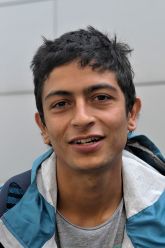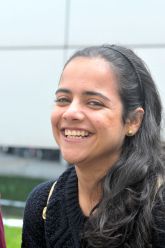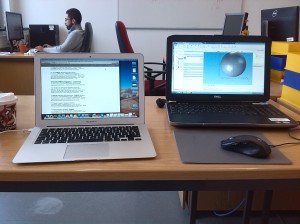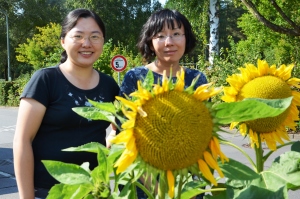There are many outstanding blog projects, but I was especially intrigued by Douglas Natelson’s Nanoscale Views. “Why should Astrofolks have all the fun?” he asks in his intro. He is a full professor at Rice University, Texas, and he writes roughly once or twice a week about solid state physics, hypes and problems and open questions. I find his blog really worth readi ng, as well as the serious comments of his readers. Via email I asked Douglas Natelson some questions, and I was very pleased that he answered them promptly!
ng, as well as the serious comments of his readers. Via email I asked Douglas Natelson some questions, and I was very pleased that he answered them promptly!
Question: What has driven you to start your blog?
Douglas Natelson: I started my blog back in 2005, when there were a large number science-related blogs being launched. I had seen many blogs concerning high energy physics and astrophysics, but none that really addressed my area of study (condensed matter and nanoscale physics).
How do you get your ideas? And when is your favorite time to blog?
DN: In the evenings, mostly. Ideas usually come up through my work, what I’ve been thinking about, and often conversations with colleagues and students.
Do colleagues or students read your blog?
DN: Yes, some colleagues and students read my blog, and occasionally they bring it up, but usually not extensively.
Do you think blogging has made you more aware of your own opinions?
DN: Yes, in the sense that I have had to think carefully about how I would put some of my opinions into a form appropriate for public consumption.
Do you sometimes change your opinions after exchange with your readers?
DN: Occasionally, but my blogging is more about trying to explain interesting science than discussing politics or controversial topics.
Did you get faster in writing up a blog post due to a training effect? Does this help you in your work?
DN: Probably, and probably. Certainly it is a good idea for anyone in our profession to get practice writing short (blog post-sized) essays, and I likely have gotten faster at this over the years.
Would you advise young scientists (without permanent positions) to blog? And if yes, are there some traps they should avoid?
I think blogging is a great form of communication and a wonderful way to practice writing. Young scientists should blog if they feel like they have something to share with the community. Of course, they should use some common sense in their blogging – like any other public forum, you should be careful with what you say and how you say it, and remember that actions have consequences. (I.e., if a young scientist is having problems with the management at work, I would not generally recommend taking that to a public forum like a blog without an enormous amount of forethought.)
Is there any advice you would like to give younger scientists who think about starting their blog?
DN: Make sure you have something to say that you think is interesting. Maintaining a blog requires some real effort, and if you run out of topics to discuss, that’s typically the end of the story.
Douglas Natelson’s Blog Nanoscale Views is published here: nanoscale.blogspot.com
 ng, as well as the serious comments of his readers. Via email I asked Douglas Natelson some questions, and I was very pleased that he answered them promptly!
ng, as well as the serious comments of his readers. Via email I asked Douglas Natelson some questions, and I was very pleased that he answered them promptly!










